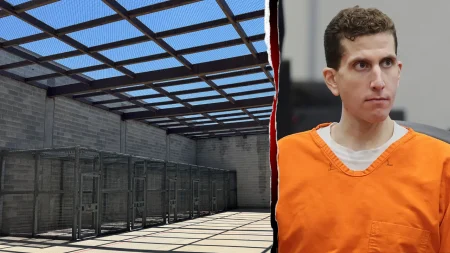The ongoing Syrian conflict, a brutal and multifaceted civil war, has entered a new phase with rebel forces intensifying their push toward Damascus, the nation’s capital. This renewed offensive, taking place in a region already ravaged by years of fighting, acts as a stark barometer of the constantly shifting power dynamics within Syria and the broader geopolitical landscape. The implications of this rebel advance extend far beyond Syria’s borders, impacting regional players like Iran, Turkey, Russia, and the United States, each with their own vested interests and strategic objectives. These nations, intricately interwoven into the Syrian conflict’s complex tapestry, are forced to recalibrate their strategies and responses in light of the rebels’ growing influence and the potential for further destabilization. The situation is highly volatile, with the potential for regional escalation and further humanitarian catastrophe.
The rebels’ advance signals a potential shift in the balance of power, challenging the Syrian government’s control and raising questions about the long-term stability of the regime. This change in dynamics has profound implications for the various actors involved in the conflict. For Iran, a staunch ally of Syrian President Bashar al-Assad, the rebels’ progress represents a direct threat to its regional influence and its strategic partnership with Syria, a vital link in its network of alliances across the Middle East. Turkey, on the other hand, has largely supported the rebel factions, viewing them as a bulwark against Kurdish separatist ambitions and a means to counter Iranian influence. The rebels’ advance, therefore, presents Turkey with both opportunities and challenges, demanding a careful balancing act to avoid escalating tensions with Russia and Iran while securing its own interests in the region.
Russia, a major backer of the Syrian government, sees the rebels’ advance as a challenge to its efforts to stabilize the country and maintain its naval base in Tartus, a strategically significant foothold in the Mediterranean. Moscow’s intervention in the conflict has been crucial in bolstering Assad’s regime and tipping the scales against the rebel groups. However, the renewed rebel offensive complicates Russia’s strategy, requiring a reassessment of its military and political involvement to prevent further erosion of the Syrian government’s control. The United States, while officially supporting a political solution and providing limited assistance to certain rebel groups, faces a complex dilemma. The rebels’ advance, while potentially weakening Assad’s regime, also raises concerns about the increasing influence of extremist elements within the opposition forces. This delicate balancing act forces the US to navigate a treacherous political landscape, cautiously calibrating its support to avoid empowering extremist groups while still pursuing its objectives of countering terrorism and promoting a stable and democratic Syria.
The evolving situation in Syria highlights the complex interplay of regional and international interests, each nation pursuing its own agenda within the crucible of the Syrian conflict. Iran’s deep-seated commitment to Assad’s regime stems from its strategic partnership with Syria, viewing it as a crucial ally in its regional power struggle against Saudi Arabia and other Sunni-majority states. Turkey’s support for the rebels, while motivated by a desire to counter Iranian influence and contain Kurdish ambitions, is also tempered by concerns about further destabilizing the region and exacerbating the refugee crisis. Russia’s intervention, driven by its strategic interests in maintaining a presence in the Mediterranean and projecting power in the Middle East, faces the challenge of balancing its support for Assad with the need to avoid deeper entanglement in a protracted conflict. The US, seeking to counter the threat of terrorism and promote a political solution, grapples with the complex reality of supporting moderate rebel factions while preventing the empowerment of extremist groups.
The rebels’ advance toward Damascus underscores the precarious nature of the Syrian conflict and the potential for further escalation. The various actors involved, each with their own strategic calculations and competing interests, must carefully navigate this volatile landscape. The risk of miscalculation and unintended consequences is high, with the potential for further regional destabilization and a deepening humanitarian crisis. The international community faces the daunting task of mediating a resolution to this complex conflict, balancing the competing interests of the regional powers while addressing the needs of the Syrian people who have endured years of suffering.
The Syrian conflict remains a stark reminder of the devastating consequences of protracted civil war and the complex challenges of achieving peace in a region riven by sectarian tensions and geopolitical rivalries. The rebels’ advance toward Damascus is not only a military development but also a symbolic representation of the fluidity of power and the ongoing struggle for control in Syria. The international community’s response to this evolving situation will be critical in determining the future trajectory of the conflict and the prospects for a peaceful resolution. The stakes are high, and the need for a comprehensive and coordinated diplomatic effort is more urgent than ever. The ongoing violence underscores the urgent need for a political solution that addresses the root causes of the conflict and brings an end to the suffering of the Syrian people.









